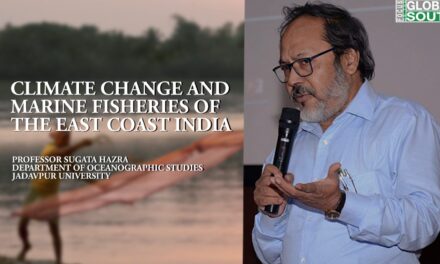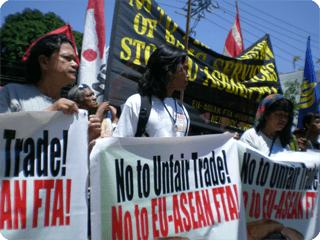Trade ministers from 142 countries will be reconvening at dawn in another attempt to reach agreement on launching a new round of world trade talks.
Negotiators worked through the night to find an acceptable draft agreement and overcome big remaining differences as the trade talks overran their scheduled conclusion.
World leaders have set high hopes on agreement, in order to revive confidence in the world trading system in the context of a world economic slowdown.
World Trade Organisation (WTO) spokesman Keith Rockwell said there were still major players who had "significant difficulties" with key issues that need resolution – including agriculture, environment, investment and textiles.
But one trade official said an agreement was "within reach," as delegates managed overnight to settle a row over imports of tuna and bananas to the European Union.
The trade negotiators also agreed a deal earlier to help developing countries gain access to cheap medicines by easing patent laws where there was a health emergency.
AGRICULTURE REMAINS THE KEY
Pressure is mounting on the European Union to agree a deal on agriculture, where the EU has been resisting pressure for an agreement in principle to phase out agricultural subsidies.
But it is hoping for some movement on environment in return, an issue where European public opinion feels strongly.
A senior UN official told the BBC that he had detected some movement on the environment issue, with an accelerated timetable of discussions and the possibility of environmental impact statements for future trade deals.
Other countries, especially from the Cairns group of agricultural exporting nations, are pressing the EU to reduce its generous agricultural subsidies under the Common Agricultural Policy, worth $90bn a year.
They say the aim of negotiations should be a "substantial reduction in, with a view towards phasing out, agricultural export subsidies."
The French economy minister Laurent Fabius said that "no European" could accept such a clause, as it implies a pre-determined end-point for the negotiation.
But the EU admitted that it was isolated on this issue, with even Japan – which has a highly protected agricultural sector – unwilling to back the EU line.
However, with all 15 EU countries having to agree any trade deal negotiated at Doha, and with France facing elections early next year, it could take some time to reach a deal.
EU press spokesman Anthony Gooch told reporters that Europe had given a lot without gaining very much in return so far.
The EU has been forced to drop controversial proposals to include investment and competition laws in any future trade negotiations.






![[IN PHOTOS] In Defense of Human Rights and Dignity Movement (iDEFEND) Mobilization on the fourth State of the Nation Address (SONA) of Ferdinand Marcos, Jr.](https://focusweb.org/wp-content/uploads/2025/07/1-150x150.jpg)

